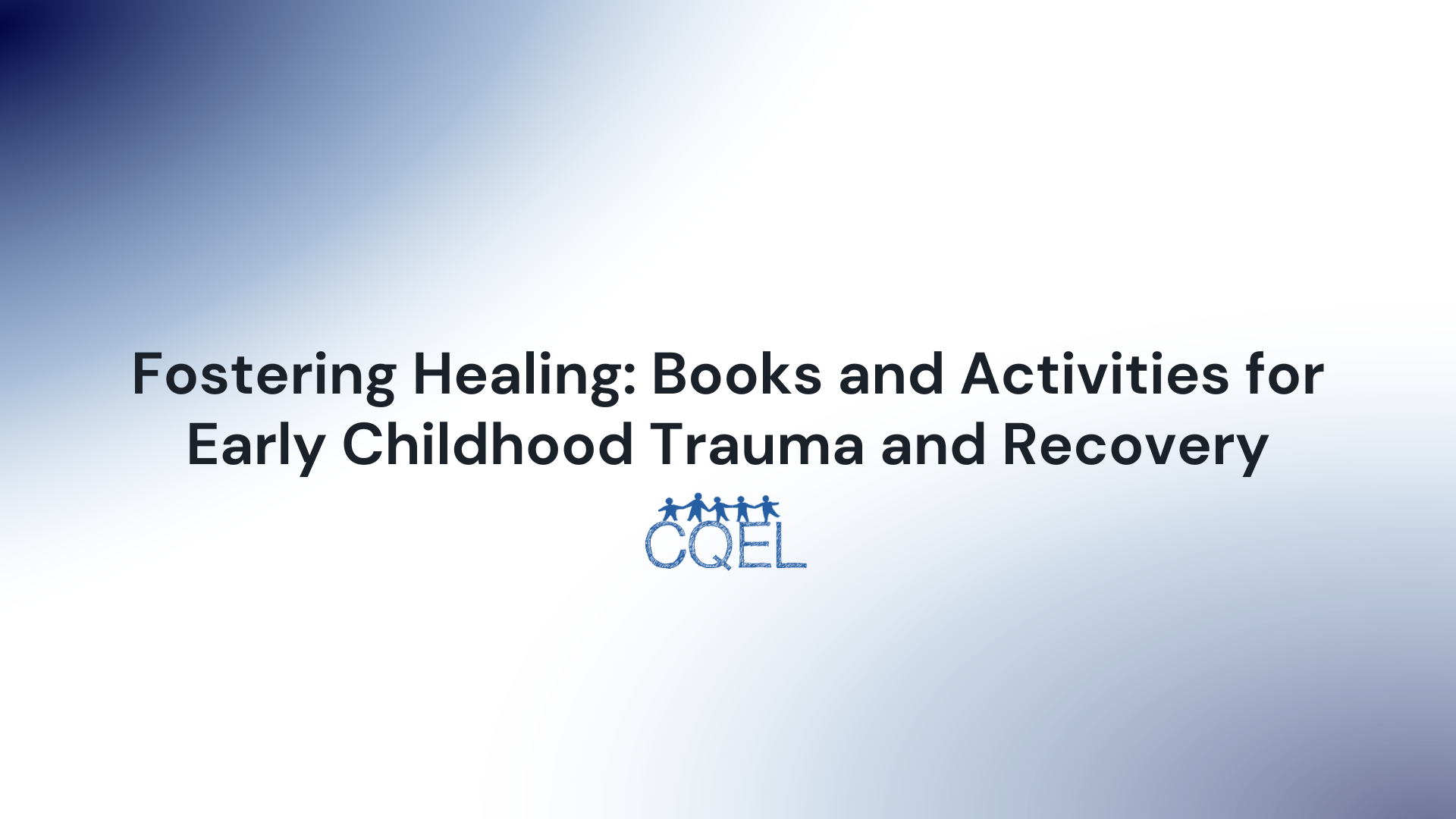Fostering Healing: Books and Activities for Early Childhood Trauma and Recovery
This blog post will delve into various books and activities that effectively support children dealing with trauma.

Navigating the landscape of early childhood trauma can be a challenging task for childcare providers. However, carefully selected books and activities can significantly aid in the healing process, enabling children to understand and express their feelings constructively. In this blog post, we'll delve into a range of books and activities that are effective in supporting children dealing with trauma.
Books to Address Trauma
- A Terrible Thing Happened by Margaret M. Holmes: This book follows the story of Sherman, who saw a terrible thing and was too scared to talk about it. Through gentle storytelling, it allows children to understand the process of therapy and realize they are not alone in their feelings (link).
- Once I Was Very Very Scared by Chandra Ghosh Ippen: With the help of animal characters, this book presents various reactions to frightening experiences, validating children's feelings and reactions to trauma (link).
- The Invisible String by Patrice Karst: This book deals with separation anxiety and loss, reassuring children that they are always connected to those they love, even when apart (link).
Activities to Foster Recovery
- Art Therapy: Encourage children to express their emotions through art. Drawing, painting, or making crafts can give them a non-verbal outlet for feelings that might be difficult to put into words. Art with Heart offers the resource "Draw it Out" specifically designed for children dealing with trauma (link).
- Mindfulness and Yoga: Incorporating mindfulness activities and simple yoga poses can help children build self-regulation skills. Cosmic Kids Yoga on YouTube is a fun and engaging resource for integrating yoga and mindfulness into your daily routine (link).
- Therapeutic Storytelling: Create a safe space where children can share their experiences and feelings. This can be facilitated through puppet shows, drama activities, or making up stories together. The Theraplay Institute offers a range of resources to guide this process (link).
Online Resources and Communities
Several online platforms provide support, ideas, and community for those helping children deal with trauma:
- The National Child Traumatic Stress Network offers a multitude of resources on childhood trauma, including activities, tip sheets, and webinars (link).
- The Child Trauma Academy offers free online courses covering various aspects of trauma (link).
- Echo Training has resources on trauma-informed care and a helpful blog with plenty of activity ideas (link).
By incorporating these books and activities into your childcare practices, you can play a vital role in supporting the recovery of children dealing with trauma. These resources provide children with the tools they need to express their feelings and understand their experiences, fostering resilience and healing.
